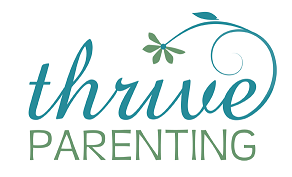 Fast and furious. That is a pretty apt description of life with preschoolers. My three have been putting me through the paces these last two weeks. Love and Logic saves my hide most days. Before Love and Logic I used to yell and scream a lot. A lot. And the guilt and shame of yelling at my little boy (back when I had just one) would just about kill me. Then I discovered Love and Logic and life changed. No kidding. Over the next two posts, I’m going to share two of my favorite Love and Logic skills with you that are an integral part of my everyday life. Today we are going to tackle effective choices.The most important thing to the success of all Love and Logic skills is using them with empathy. To learn more about the importance of empathy and how to use empathy as an actual parenting skill, see my previous blog post here.
Fast and furious. That is a pretty apt description of life with preschoolers. My three have been putting me through the paces these last two weeks. Love and Logic saves my hide most days. Before Love and Logic I used to yell and scream a lot. A lot. And the guilt and shame of yelling at my little boy (back when I had just one) would just about kill me. Then I discovered Love and Logic and life changed. No kidding. Over the next two posts, I’m going to share two of my favorite Love and Logic skills with you that are an integral part of my everyday life. Today we are going to tackle effective choices.The most important thing to the success of all Love and Logic skills is using them with empathy. To learn more about the importance of empathy and how to use empathy as an actual parenting skill, see my previous blog post here.
Love and Logic tells us we can gain the most control by sharing it with our children whenever possible. Children that are given little opportunity to assert reasonable and appropriate control in their lives will attempt to gain that control through misbehavior, arguing, and manipulation.
So here’s what Love and Logic teaches:
- Offer two choices that you are absolutely fine with. Either one would make your day!
- Offer choices at every opportunity. This builds up your child’s sense of autonomy and power.
- Allow your child about ten seconds to choose. Can’t wait all day!
- If your child doesn’t choose, make the choice for her or him. Maybe pick the one your child would like least to encourage quicker decision making in the future.
Here are a few examples:
“Do you want to change your diaper now or in two minutes?”
“Do you want to bring that toy with you or leave it here when you get your diaper changed?”
“Do you want to leave now or in five minutes?”
“Do you want a fun bath or a fast bath?”
“Do you want to get out of the bath now or when the water is all gone?”
“Do you want to wear your coat or be cold?”
“Do you want to change your diaper now or in two minutes?”
“Do you want to bring that toy with you or leave it here when you get your diaper changed?”
“Do you want to leave now or in five minutes?”
“Do you want a fun bath or a fast bath?”
“Do you want to get out of the bath now or when the water is all gone?”
“Do you want to wear your coat or be cold?”
This is simple stuff and the possibilities are endless! All day long you can give your child opportunities to learn how to make good decisions and feel so powerful and thinking so hard they have little need to throw a fit on the floor.However, not all choices are equal. Here are some tips on avoiding ineffective choices.
- Give choices BEFORE the problem starts. Giving choices after resistance rewards problem behavior.
- Give two REAL choices. Not one choice you like and one threat!
- Give choices about small decisions, not issues that impact the entire family.
- Use a cheerful voice when offering choices, rather than an angry or threatening voice.
- When you are at your limit, remind your child of all the choices they got to make that day and let them know it is your turn to choose.
I always recommend that parents identify issues that are a daily problem, then pick one to start with. Come up with two choices you can offer in advance of the problem behavior and practice your delivery until it is smooth like butter. When your lines roll right off your lips, then you are ready to get started. Once you are seeing results and offering choices feels totally natural, move on to the next problem behavior and repeat the process.
Isn’t it fun to think about your kids’ misbehavior when you have effective skills at your fingertips! Enjoy your putting Effective Choices into play and I’ll be back in two weeks sharing tips on Enforceable Statements.
Isn’t it fun to think about your kids’ misbehavior when you have effective skills at your fingertips! Enjoy your putting Effective Choices into play and I’ll be back in two weeks sharing tips on Enforceable Statements.
 Carrie Cothran-Williams is the owner of Thrive Parenting and facilitates Love and Logic Early Childhood Parenting Made Fun workshops all over Austin. Check thriveparenting.blogspot.com for upcoming sessions. Like Thrive Parenting on Facebook for exclusive offers and discounts!
Carrie Cothran-Williams is the owner of Thrive Parenting and facilitates Love and Logic Early Childhood Parenting Made Fun workshops all over Austin. Check thriveparenting.blogspot.com for upcoming sessions. Like Thrive Parenting on Facebook for exclusive offers and discounts!








Great post– what age do you recommend for this?
Effective choices are a great way to relate to any age child, even adults! Really, it is a matter of choosing age appropriate choices and using a tone of voice that is natural to the situation. Even very young and pre-verbal children can respond to simple choices. One I used with one of my twins around 14 months of age was, “you may sit at the table and eat your food or you can scream in your crib. What would you like to do?” It was amazing how quickly he quieted down after his first opportunity to scream in his crib. Good luck!
Carrie
So I CAN start using it on my husband! Haha, just kidding. I was wondering about the pre-verbal because my daughter is 17 months . . . but I know for a fact that she understands a lot more than she lets on! Can’t wait to put it to use. Thanks so much!
Thanks Carrie! I’ll be printing this out and tacking it to my “good parenting” bulletin board in the nursery! (emily’s friend, Elsa in SC)